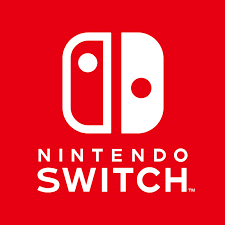Nintendo has secured a significant legal victory in its ongoing battle to protect its intellectual property, winning a $2 million settlement against Ryan Daly, who operated the website "Modded Hardware". The website sold devices and offered services that enabled users to circumvent Nintendo's copyright protections on its popular Switch console, allowing for the playing of pirated games.
This legal action is just the latest in Nintendo's long history of aggressively defending its intellectual property. The company has a track record of pursuing legal action against those who create and distribute modchips, emulators, and unauthorized copies of its games. Nintendo's stance is rooted in its desire to maintain control over its products and prevent piracy, which it believes undermines its business and devalues its creative works.
The case against Daly and Modded Hardware highlights several key aspects of Nintendo's approach to intellectual property protection. The website allegedly sold pre-modded Nintendo Switch systems, as well as accessories that allowed illegally downloaded games to work on the hardware without mods. Daly also purportedly offered a mail-in service where customers could send in their Switch consoles to be modified. Nintendo's lawsuit claimed that Daly was not only offering the hardware and firmware to create and play pirated games but was also providing customers with copies of pirated Nintendo games.
According to the judgment, Daly had initially agreed to stop selling the unauthorized devices but then reneged, prompting Nintendo to sue. In addition to the $2 million settlement, Daly is now permanently prohibited from handling, selling, or promoting any modding devices or modded consoles, or providing any information that might help others carry out their own mods. The court order also mandates the seizure and destruction of any devices that Daly used in running his modding business. Moreover, Daly is permanently banned from "reverse engineering" Nintendo systems or linking to related materials. The judgment also invokes the All Writs Act to compel third parties, including web hosts and registrars, to help shut Daly down for good.
Nintendo's pursuit of modders and piracy extends beyond just lawsuits. The company has been known to issue cease and desist letters to fan-made projects that use significant facets of their IP and has also been actively targeting websites that distribute ROM images of its games. Nintendo has also updated its End User License Agreement (EULA) to state that it has the right to render user devices completely or partially inoperable if they violate the terms, particularly through hardware modifications or unauthorized software use. This includes actions like extracting ROMs or altering hardware in any way not explicitly approved by Nintendo.
While Nintendo's aggressive approach to protecting its intellectual property is applauded by some, it has also drawn criticism from others. Some argue that the company's actions stifle creativity and limit consumer freedom. Others contend that modding and emulation can serve legitimate purposes, such as game preservation. However, Nintendo maintains that its actions are necessary to protect its intellectual property and prevent piracy, which it believes ultimately harms the gaming industry.
It is important to note that modding a Nintendo Switch can have consequences for users. Modded consoles are typically banned from all online services. Nintendo has been known to brick modified consoles, rendering them permanently unusable.
This latest legal victory sends a clear message that Nintendo is serious about protecting its intellectual property and will aggressively pursue those who attempt to infringe upon its rights. As technology continues to evolve and the debate over digital ownership and game preservation intensifies, it is likely that Nintendo will continue to be at the forefront of these legal battles.















